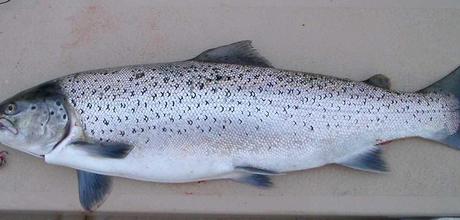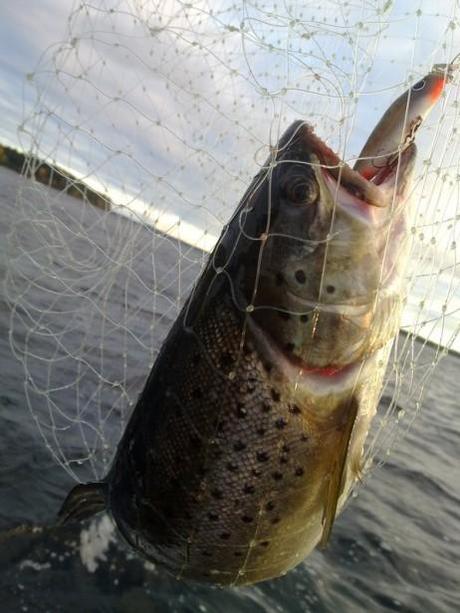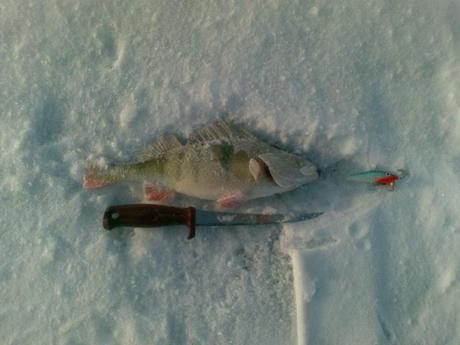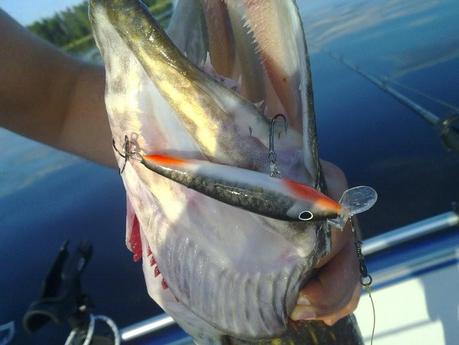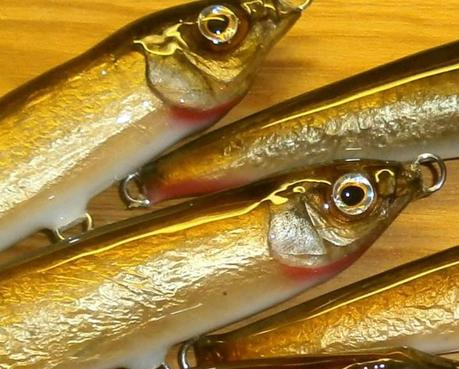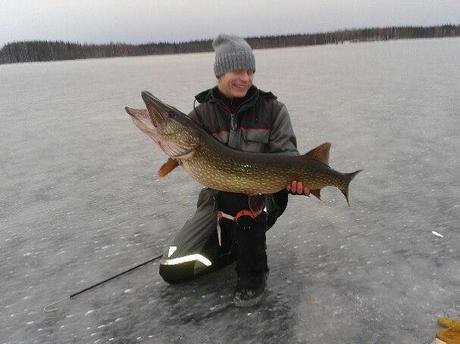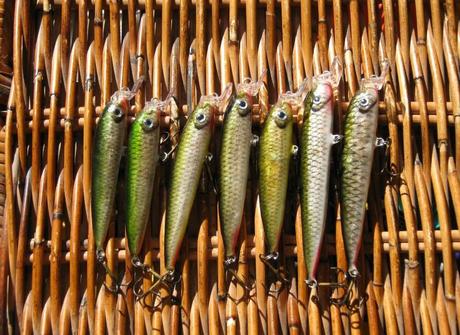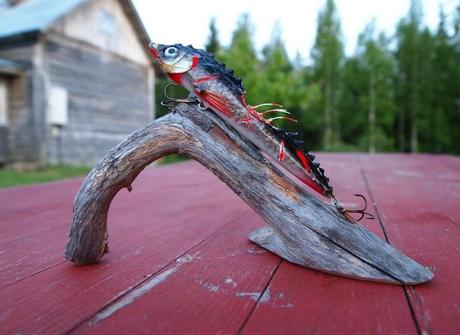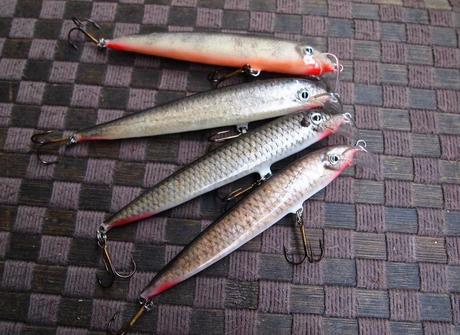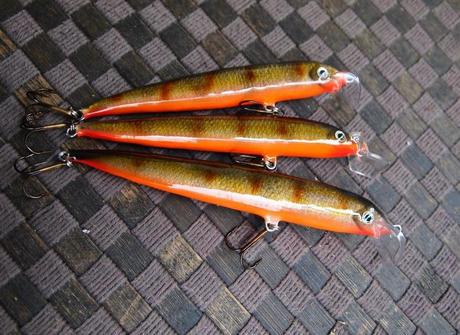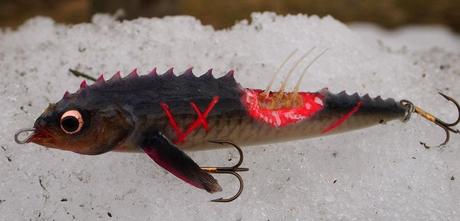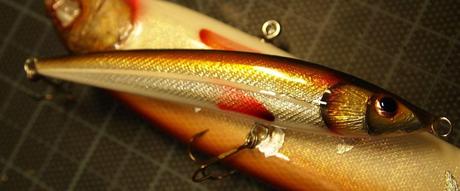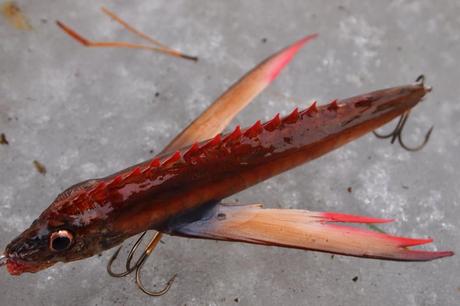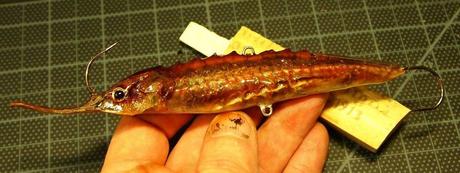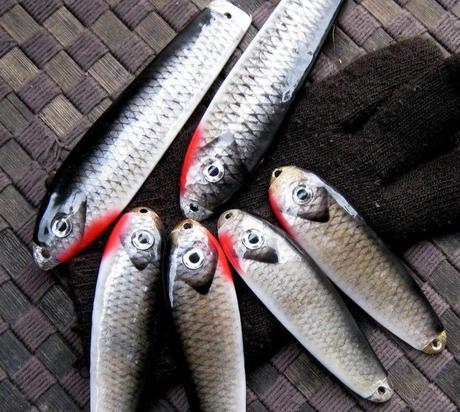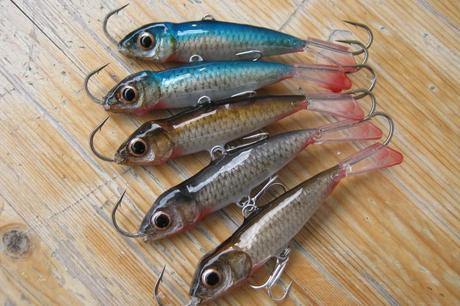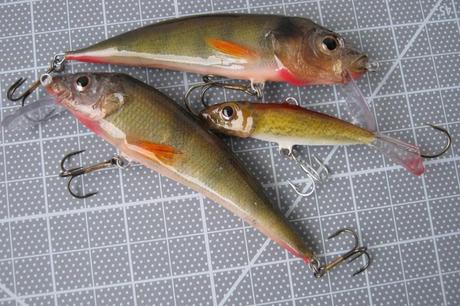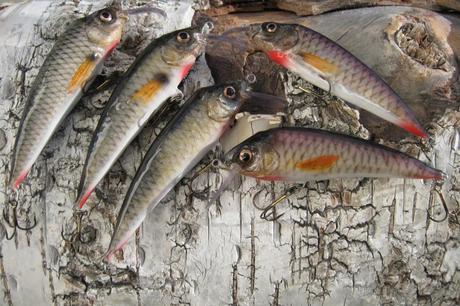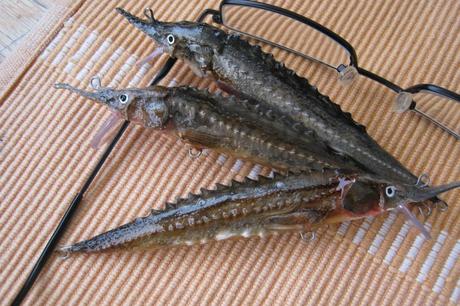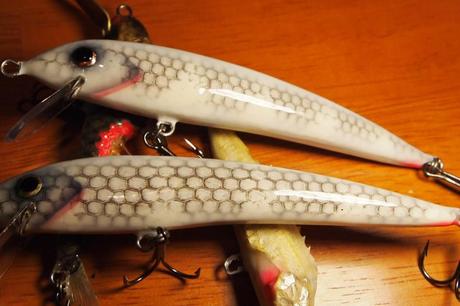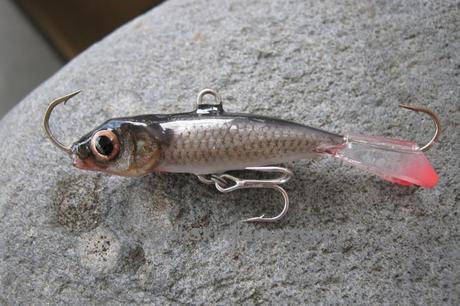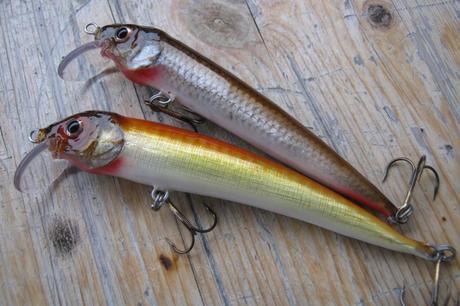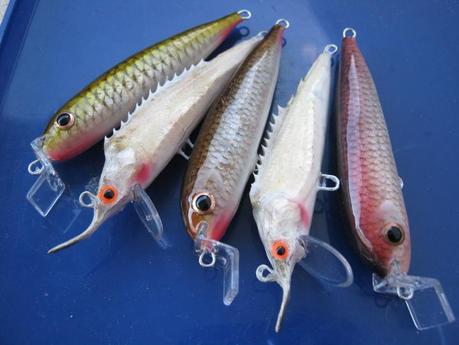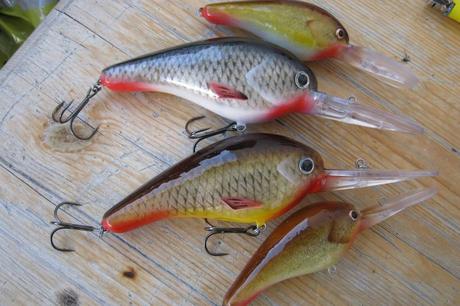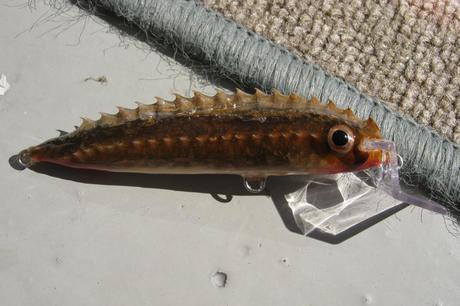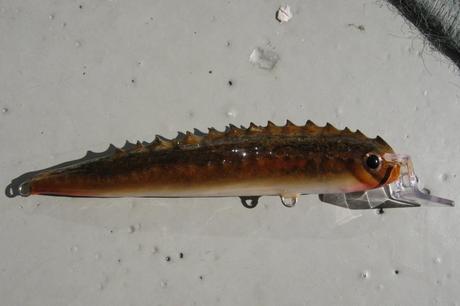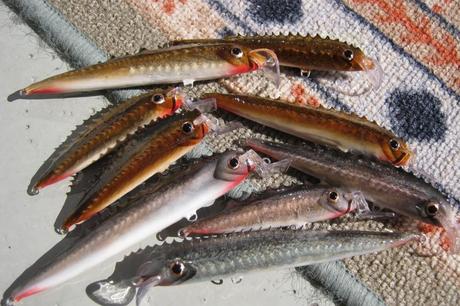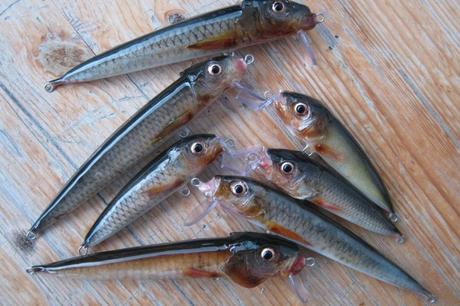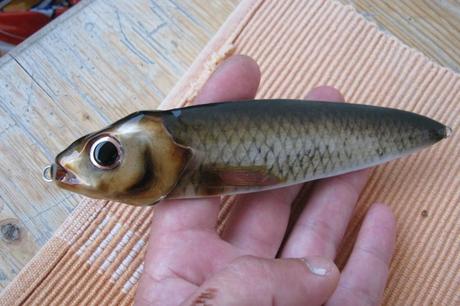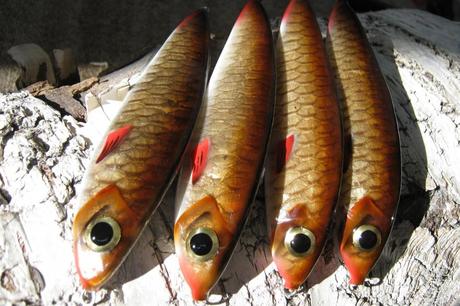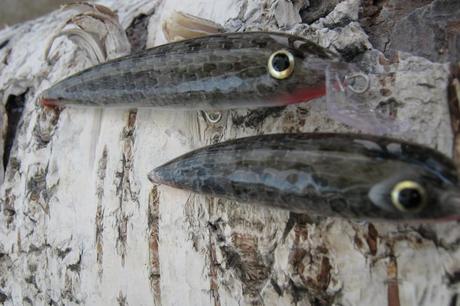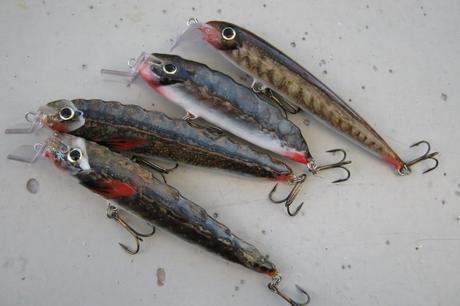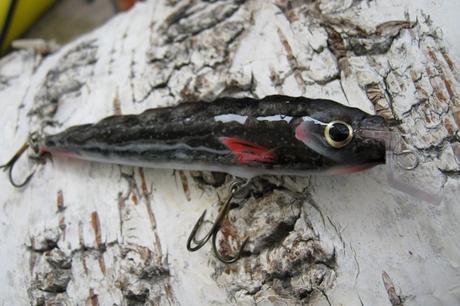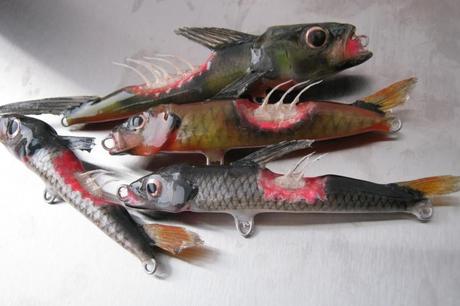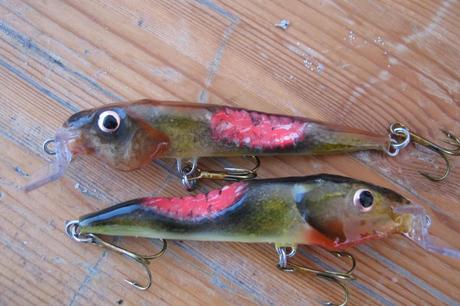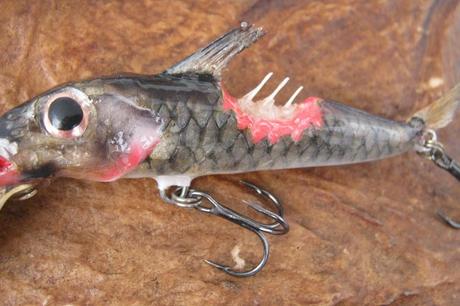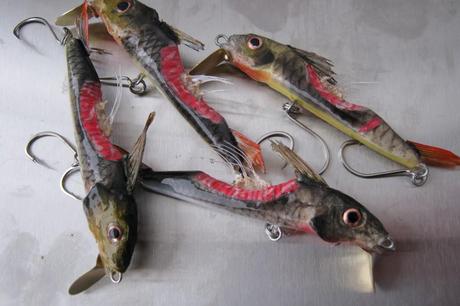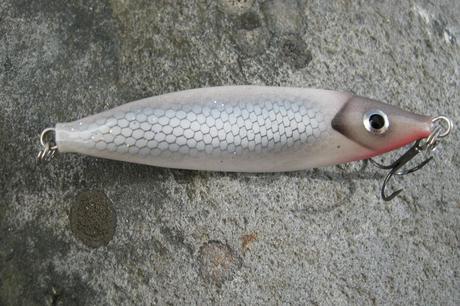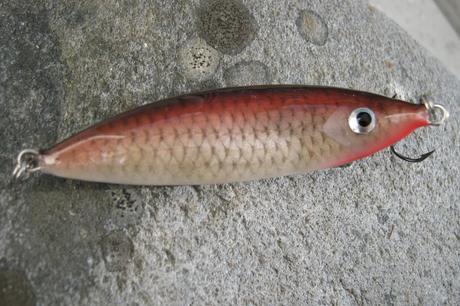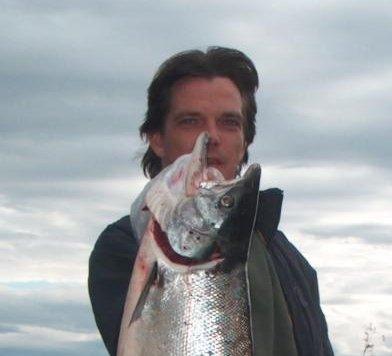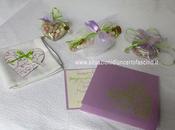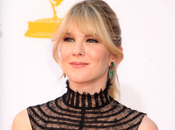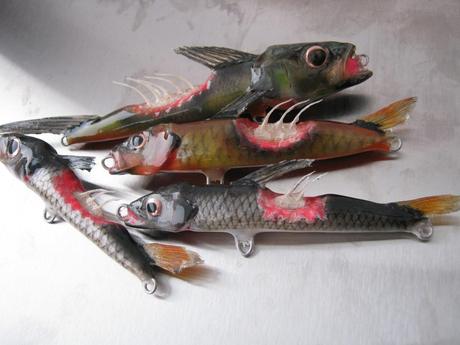 Quando si parla di realismo in genere si indicano colorazioni e forme che ricordano molto le creature a cui si sono ispirate. Petri va oltre, riuscendo a ricreare perfettamente i pesci che vuole, utilizzando nella creazione delle sue esche, anche parti di pesci veri. Questo moderno Frankenstein, già molto apprezzato nei paesi del nord, ha generato una galleria di esche che è un vero piacere scoprire, una dopo l’altra. A seguire, l’intervista in inglese.
Quando si parla di realismo in genere si indicano colorazioni e forme che ricordano molto le creature a cui si sono ispirate. Petri va oltre, riuscendo a ricreare perfettamente i pesci che vuole, utilizzando nella creazione delle sue esche, anche parti di pesci veri. Questo moderno Frankenstein, già molto apprezzato nei paesi del nord, ha generato una galleria di esche che è un vero piacere scoprire, una dopo l’altra. A seguire, l’intervista in inglese.
Il mio nome è Petri Muuttoranta, vivo a Joensuu in Finlandia orientale e ho 42 anni. Di solito uso il nick “Piatu” su tutti i forum di pesca. Collaboro con un test group di 5-8 persone diverse in Finlandia. A loro do da provare in anticipo le mie esche. Io di solito uso solo esche mie quando pesco.
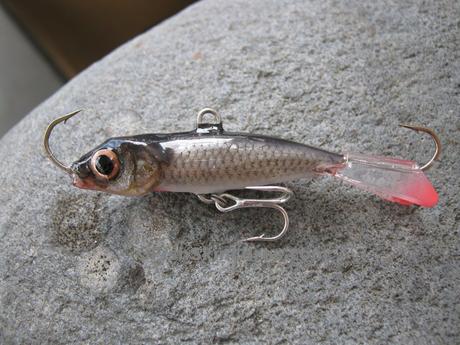
I miei primi ricordi risalgono a quando avevo 5-6 anni con mio padre .
2. Quanto tempo fa hai iniziato a costruire esche? Ti ricordi la prima esca che hai creato?
Ho fatto la prima esca quando avevo 16 anni e, naturalmente, l’esca era di legno, lunghezza ~ 10 – 12 centimetri e dipinta con smalto da unghie.
3. Perché hai iniziato a costruire esche?
Ho pescato molto in precedenza e provare a verificare che tipo di esche potevo fare mi ha portato verso l’autocostruzione.
4. Quando peschi che tecniche pratichi, dove e rivolte a che pesce?
Mi piacciono tutte le tecniche di pesca, ma pesci più importanti sono i persici e i temoli presi nella natura incontaminata finlandese, lontano dalle strade.
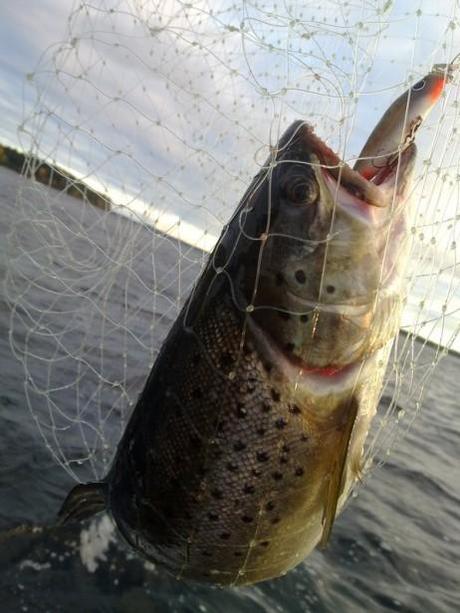
Fumo e lavoro troppo…
6. Qual è il tuo materiale preferito per la costruzione delle esche? E quale tecnica di costruzione preferisci?
Le mie materie preferite sono le pelli vere di pesce, teste, pinne … tutte le parti vere di pesci e tutto quello che riesco a fare con le mie mani… stile old school.
7. Nel corso degli anni, produttori e tecnologie hanno migliorato molto le nostre attrezzature da pesca, per te qual è stata la novità più utile e rilevante?
Canne più leggere, mulinelli, nuove lenze sempre più resistenti… Sono tante le grandi novità arrivate sul mercato.
8. Qual è l’elemento che conta di più nel successo di un artificiale? Colore e realismo, 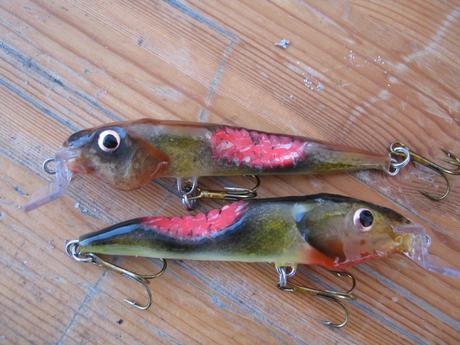
Tutti gli elementi devono essere in equilibrio in un’esca, ma le vibrazioni e il realismo per me sono fondamentali.
9. Puoi descrivere le principali fasi di costruzione delle tue esche?
Troppi passaggi, ma a grandi linee:
- Creazione del corpo e fissaggio dell’armatura.
- Rivestimento di base.
- Incollaggio testa, pelle, pinne.
- Secondo rivestimento…
- Pittura e incollaggio occhi, paletta.
- Finitura.
- Armatura e prova di nuoto.
10. Quanto tempo dedichi alla costruzione di esche e quanto alla pesca?
Oggigiorno non posso pescare tanto quanto vorrei, ma in estate cerco sempre di ritagliarmi 2-4 settimane da dedicare alla pesca.
11. Cosa significa per te la pesca? E cosa significa per te costruire esche?
Oggi, per me, costruire esche è una parte enorme della pesca, incontrare nuove persone e ricevere idee diverse. Non posso fare una divisione netta tra la costruzione e la pesca vera e propria, perché entrambe sono molto importanti. Costruzione e pesca.
12. Qual è la tua marca preferita di esche, comprese quelle sul mercato?
Forse, la marca commerciale che uso di più è la Kuusamo.
13. Qual è il tuo sogno come costruttore di esche?
Continuare a migliorare come luremaker e mantenere la mente di un bambino quando lo faccio. Semplicemente continuando a divertirmi.
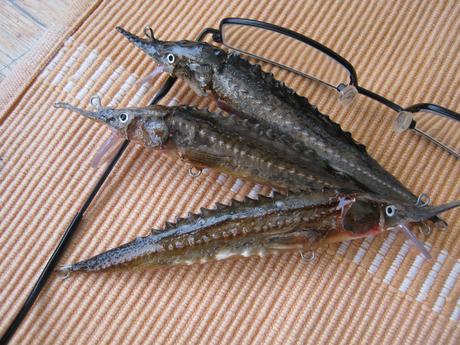
Martti Suokas, uno dei migliori luremaker in pelle di pesce.
15. Quali sono le materie prime e gli strumenti che ti sentiresti di consigliare a chiunque voglia iniziare a costruire esche? E con quale tipo di imitazione (pesciolino galleggiante, deep diver … )?
Forse è più semplice fare un minnow galleggiante “Rapala-style”. Un po’ di balsa, filo, paletta e ganci… e per finire vernice spray o smalto. Facile ed economico.
16. Che consiglio daresti a quelli che hanno appena iniziato a costruire esche?
Tenere la mente aperta e i nervi distesi. Non tutto riesce subito… Riprovare sempre, i guai insegnano ogni volta.
Per contattare Petri e vedere tutti i suoi lavori potete andare sul suo sito o sulla sua pagina Facebook, o se capite il finlandese, guardare il servizio andato in onda sulla televisione nazionale yle.
——————————————————————- ENGLISH——————
Usually, when it comes to realism, people indicates colors and shapes very close to the creatures which they are inspired to. Petri goes further, perfectly recreating the fish he wants, using even pieces of real fish. This modern Frankenstein, much appreciated in northern countries, has created a gallery of baits that is a real pleasure to discover.
My name is Petri Muuttoranta and i live at Joensuu in eastern Finland and i’m 42 years old. I usually use nick “Piatu” at all fishing forums. I make co-operation with testgroup 5-8 diffrent people at Finland. Who gives advance for my lures. I usually fish only with own lures.
1. When did you start fishing?
My first memories was ~5-6 years old lad with my dad.
2. How long ago did you start to build lures? Do you remember the first bait that you’ve created?
I made first serious lures when i was ~16 year old lad and of course kinda wooden plug, lenght ~10-12cm painted with nail polishe.
3. Why did you start to build baits?
I have fished earlier a lot and try to test what kind of plugs can i do…and that way takes me.
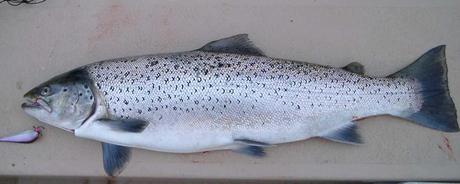
All fishing techniques fits to me, but most important fishes are perches and graylings from finnish wilderness far away from roads.
5. What is your biggest vice?
I smoke and i work too much…
6. What is your favorite material to construct the baits? And what construction technique do you prefer?
My favorite materials are real fish skins, -heads, -fins…all parts from fishes and as much as i can i do with my hands…old school style.
7. Over the years, the technology of fishing tackle are much improved. In your opinion what was the most important and useful innovation?
Lighter rods, reels , new stronger lines….so many new good stuff has come to fishing.
8. Wich element most determines the success of a lure? Color and realism, weight 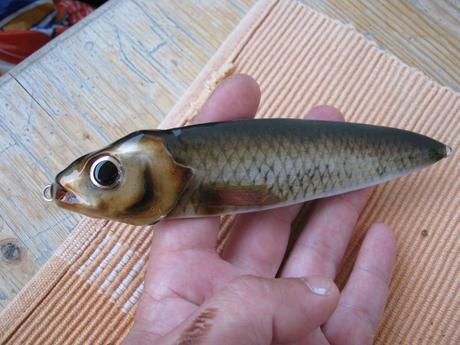
All elements must be in balance at lures, but vibration and realism is important to me.
9. Can you describe the main building steps of your lures?
Too many steps, but rude way:
-Body making and gluing wires.
-Base coating.
-Gluing head, skin, fin.
-….More coating.
-Painting and gluing eyes, bibs.
-Topcoat.
-Hooking and test swim.
10. How much time do you spend on building baits and how much on fishing? Nowdays i cannot fish as much as i want to go, but at summers i try to take time 2-4 weeks to fishing.
11. What does it mean for you fishing? And what does it mean for you to build lures?
Nowdays bait building is one huge part in fishing to me, meeting new peoples and get totally different ideas from other peoples. I cannot make straight borders within building and fishing because both of are very important to me and are effective each other. Building and fishing.
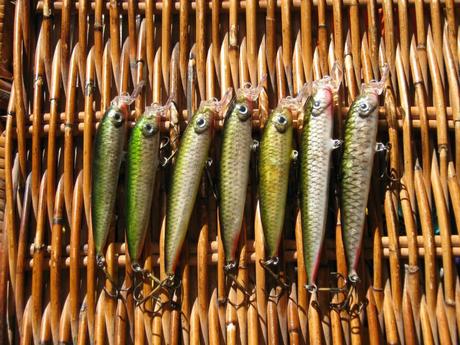
Maybe i use mostly “kuusamo”- brand lures mostly.
13. What is your dream as a manufacturer of baits?
Coming better and better luremaker and still keeping that funny childish mind in making.
14. If you could work with another manufacturer of lures – past or present – who would you choose?
Martti Suokas, one of best luremaker in fish skins.
15. What are the first materials and tools that you’d to advice to anyone who wants to start to build baits ? And with what kind of imitation (crank, floating minnow, deep diver …)?
Maybe easiest is make floating “rapala-style” minnow. Little bit balsa,wire, bib and hooks..Spray paint or nail polish . Easy and cheap.
16. What advice would you give to those just beginning to build baits?
Open mind , long nerves and all wont succeed straight….try again, troubles always teach.
To contact Petri and see all his creatures you can visit his website or his Facebook page, or if you understand Finnish, you can watch the report broadcast on national television yle.
